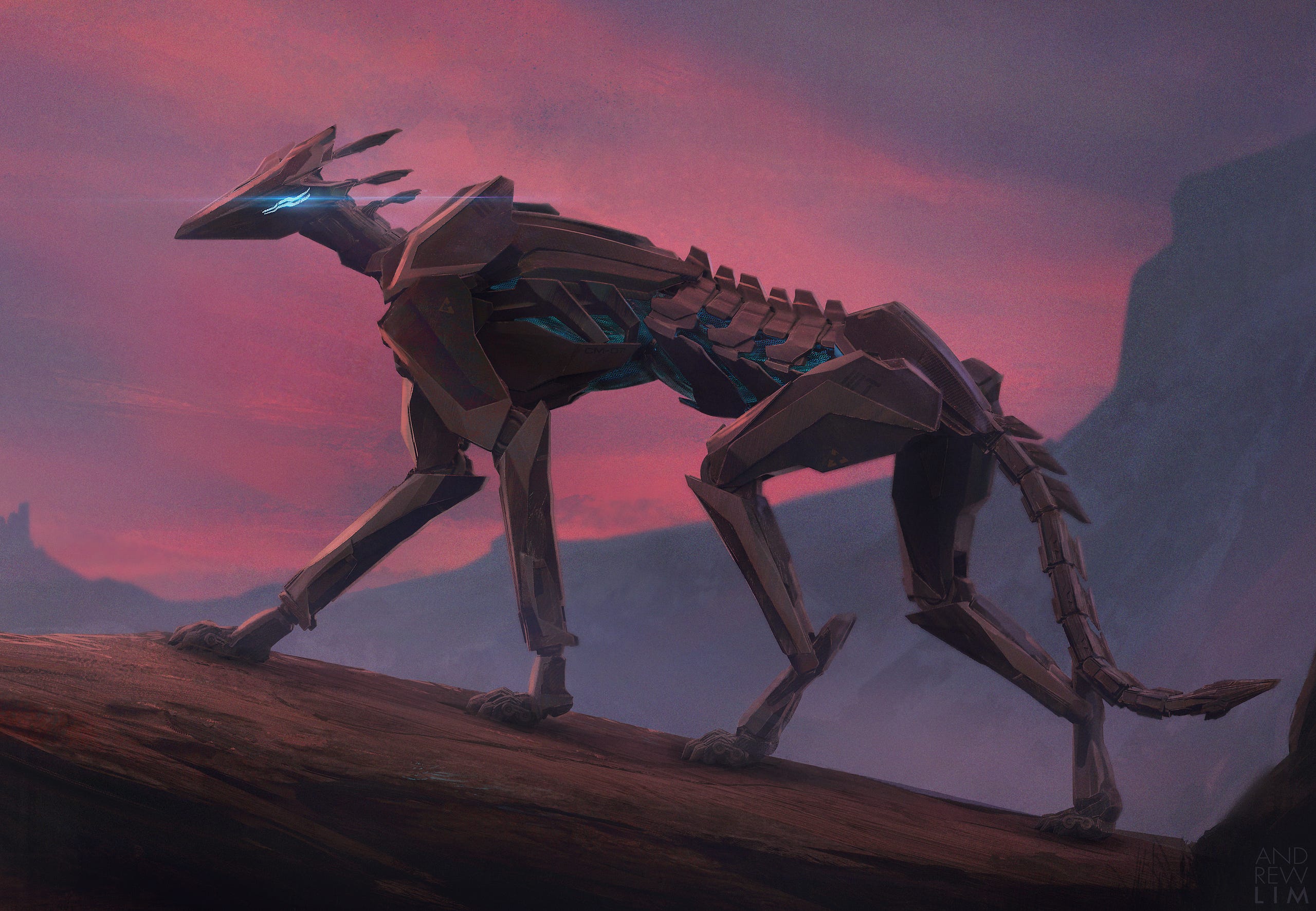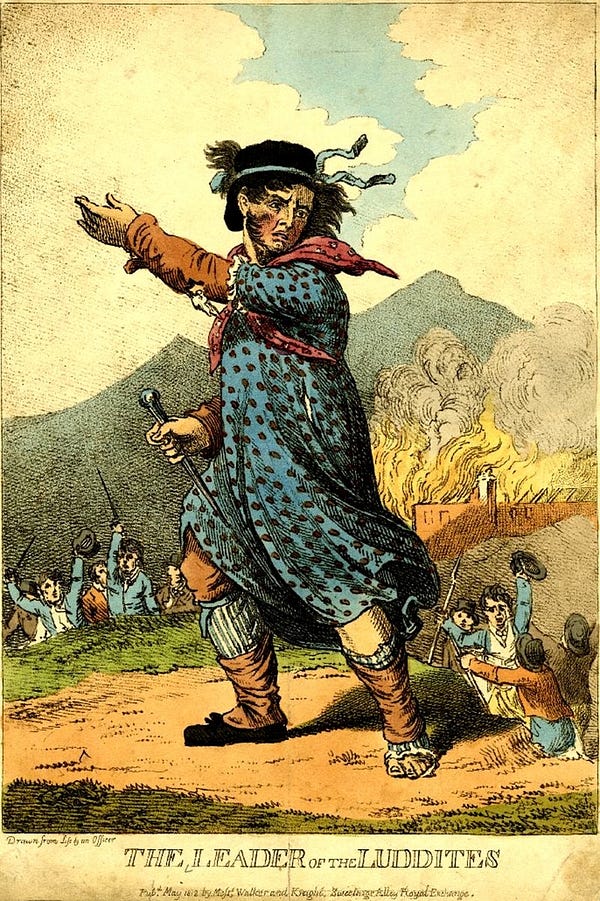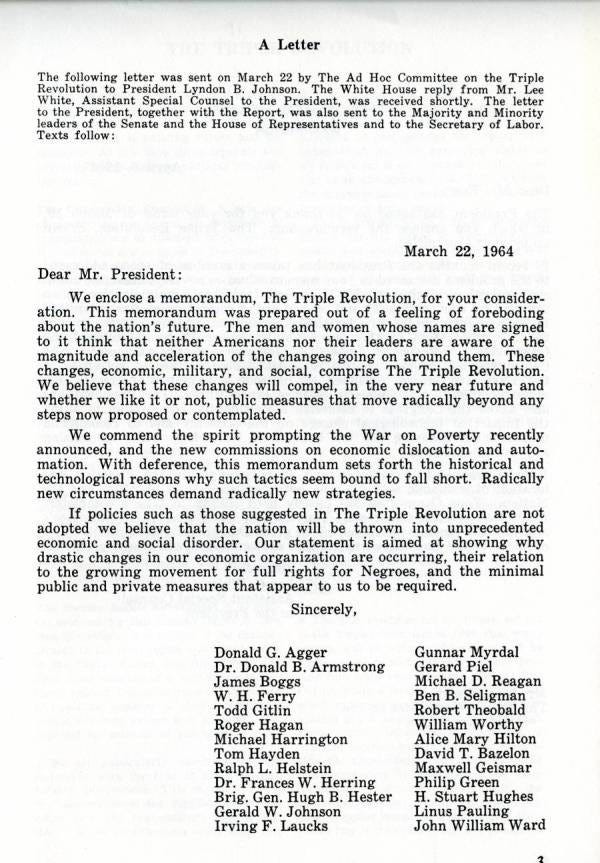
“There can be no gainsaying of the fact that a great revolution is taking place in the world today. In a sense it is a triple revolution: that is, a technological revolution, with the impact of automation and cybernation; then there is a revolution in weaponry, with the emergence of atomic and nuclear weapons of warfare; then there is a human rights revolution, with the freedom explosion that is taking place all over the world. Yes, we do live in a period where changes are taking place.” — Dr Martin Luther King, March 31st, 1968
The Boy Who Cried Wolf — Aesop Fable number 210
“Nobody believes a liar…even when he is telling the truth!” — Aesop
There once was a shepherd boy who was bored as he sat on the hillside watching the village sheep. To amuse himself he took a great breath and sang out, “Wolf! Wolf! The Wolf is chasing the sheep!”
The villagers came running up the hill to help the boy drive the wolf away. But when they arrived at the top of the hill, they found no wolf. The boy laughed at the sight of their angry faces.
“Don’t cry ‘wolf’, shepherd boy,” said the villagers, “when there’s no wolf!” They went grumbling back down the hill.
Later, the boy sang out again, “Wolf! Wolf! The wolf is chasing the sheep!” To his naughty delight, he watched the villagers run up the hill to help him drive the wolf away.
When the villagers saw no wolf they sternly said, “Save your frightened song for when there is really something wrong! Don’t cry ‘wolf’ when there is NO wolf!”
But the boy just grinned and watched them go grumbling down the hill once more.
Later, he saw a REAL wolf prowling about his flock. Alarmed, he leapt to his feet and sang out as loudly as he could, “Wolf! Wolf!”
But the villagers thought he was trying to fool them again, and so they didn’t come.
At sunset, everyone wondered why the shepherd boy hadn’t returned to the village with their sheep. They went up the hill to find the boy. They found him weeping.
“There really was a wolf here! The flock has scattered! I cried out, “Wolf!” Why didn’t you come?”
An old man tried to comfort the boy as they walked back to the village.
“We’ll help you look for the lost sheep in the morning,” he said, putting his arm around the youth, “Nobody believes a liar…even when he is telling the truth!”
The Luddite Revolution — Cry One
The term Luddite refers to those opposed to industrialisation, automation, computerisation and new technologies in general. The Luddites were a group of English textile workers and weavers in 1811. In protest to automation, the Luddites destroyed weaving machinery and protested violently.
Luddites feared that the time spent learning the skills of their craft would go to waste as machines would replace their role in the industry.
When factory owners took to shooting protesters, the military was engaged and the rebellion eventually ended in 1816.
The Triple Revolution Report — Cry Two
“The nation will be thrown into unprecedented economic and social disorder.” — The Triple Revolution Report
The Triple Revolution Report was an open memorandum sent to U.S. President Lyndon Johnson and other government figures on March 22, 1964.
The report was signed by noted social activists, professors, and technologists, which included two Nobel laureates.
According to the report, eventually, there would be very little that machines could not do. It predicted that we would experience soaring inequality, massive unemployment and permanently damaged consumer spending power.
It went on to predict that while the economy would benefit from automation and reduced costs, it would subsequently suffer because people would lack the purchasing power to drive economic growth.
This team of great thinkers also suggested the necessity of a minimum basic income. We know this as UBI or universal basic income today.
The report hit the front pages of mainstream newspapers; The New York Times covered it extensively. It was a big deal, but only momentarily.
As time passed and the predictions of the report did not materialise as predicted it lost prominence. Other issues were more important; other crises took the limelight. Economists learned that the economy always adjusts, even if there are some jobs lost there are others created in their place. That is what the pattern suggested and that would be what happens in the future.
Those who continued to write about a possible automation revolution were ridiculed and considered Luddites. As is lamentably the case, it is often safer for one’s reputation and one’s career to stick to mainstream thinking.
“Worldly wisdom teaches that it is better for reputation to fail conventionally than to succeed unconventionally.” — John Maynard Keynes
This Time Is Different, Black Swans — Cry Three
Black Swan Theory describes an event that comes as a surprise, has a major effect, and is inappropriately rationalised after the fact with the benefit of hindsight.
The theory was developed by Nassim Nicholas Taleb to explain:
- The disproportionate role of high-profile, hard-to-predict, and rare events that are beyond the realm of normal expectations in history, science, finance, and technology.
- The non-computability of the probability of the consequential rare events using scientific methods.
- The psychological biases that blind us to uncertainty, both individually and collectively.
It is important to realise that “black swan events” are not necessarily low-probability events. Black Swans are dependent on the person who experiences the event. For the vast majority of the world, singularity, economic singularity and super intelligence are a thing of science fiction. It will not happen in their lifetime. To support their argument, non-believers can point to “failed” predictions like the Triple Revolution Report to verify that those who cry wolf often get it wrong.
For most of us, the 2008 economic crash was a black swan event. However, for a small number of people, it happened as expected, a predicted and in some cases, they even cried wolf.
For most of the world, the coming artificial intelligence revolution/singularity/economic unemployment will be a black swan event
For a small number of people, it will happen as expected.
For all of us, we are not ready.
Singularity
Singularity is a term borrowed from maths and physics, where it means a point at which conditions are so extreme that the normal rules break down.
Best-selling author on the subject of AI and previous guest on the innovation show Calum Chace writes about two forthcoming singularities.
The first is an economic singularity when machines render humans unemployable and we need a universal income to survive, as predicted in the Triple Revolution Report.
The second is a technological singularity when we will witness unfathomable technological growth. AI will enter a “runaway reaction” of self-improvement cycles, with each new and more intelligent version appearing more rapidly, resulting in a powerful superintelligence that would render humans the second smartest species on the planet.
“I am very close, to the cutting edge in AI and it scares the hell out of me. It’s capable of vastly more than almost anyone knows and the rate of improvement is exponential.” — Elon Musk
The Black Swan Singularity
Like the many companies and industries that found themselves disrupted “seemingly” overnight (Nokia, Blockbuster, Retail, Media).
Like the industries affected by the 2008 financial crisis “seemingly” overnight.
Like all of us affected by the terrorist attacks of 9/11.
This will come all too suddenly. The majority will be blindsided. Even for those who are working on this, we will not be ready.
Many of us only complete tasks when the deadline is close. Many companies only react to a burning platform. The fact is, this platform is burning at an exponential rate, but the early stages of exponential progress look slow compared to the latter.
I call this phenomenon The Black Swan singularity.
Why This Time Really Is Different
Artificial Intelligence has had a few false starts along its evolution, but now there are several colliding catalytic forces thrown into the same mixing bowl. Some of the ingredients of the black swan singularity include an ever-increasing abundance of digitised data, Moore’s law and the exponential growth in the capability of AI and quantum computing.
(Our guest on this weeks innovation show is Martin Ford, in his brilliant ‘Rise of the Robots’ he calls these enabling ingredients The deadly trends.)
Moore’s Law
In 1965, Gordon Moore (Intel co-founder) observed that the size of transistors is reduced every 2 years, approximately doubling the computing power contained in a chip. This is why our smartphone has more computing power than the Apollo spacecraft, which flew to the moon.
While some argue that this law is dead, we are still seeing doublings at an exponential rate.
It can be difficult to put Moore’s law, repeated doublings and exponential growth in context. The following analogy helps greatly.
Exponential Growth
Imagine you are at Wembley stadium sitting in the highest seat. On the pitch below you see the match official drop a single drop of water on the pitch. After one minute she drops two more drops on the pitch. A minute later she doubles that and drops four. Each minute thereafter she doubles the number of drops. Now, imagine the stadium was sealed so the water could not escape.
If the official continues to double the number of drops every minute, how long do you think it would take to flood Wembley?
From the very first drop, to completely filling the stadium it would take a mere 49 minutes!
Following is the really important question…
How long before do you think it would take before the water reaches the first seats on the pitch and covers the heads of those sitting there?
This part takes 45 of the 49 minutes.
That means by the time the first people start to realise there is a problem, the rest of the 90,000 people have only got 4 minutes to escape.
This is why the singularity will appear as a Black Swan event. It will seem to come from nowhere. It will seem to happen all of a sudden.
Because it is not newsworthy, nor high on any political or regulatory agenda it will blindside humanity.
We are not ready.
As for the boys who cried wolf and those crying it today…
“It’s true up until the point when it’s not true anymore.” — Martin Ford
THANK YOU FOR READING, PLEASE HIT A THUMB SO OTHERS WILL SEE THIS
This week’s innovation show is episode 99: Rise of the Robots: Technology and the Threat of a Jobless Future with Martin Ford
Martin Ford is a futurist and the author of the New York Times bestselling “Rise of the Robots: Technology and the Threat of a Jobless Future” (winner of the 2015 Financial Times/McKinsey Business Book of the Year Award and translated into more than 20 languages) and “The Lights in the Tunnel: Automation, Accelerating Technology and the Economy of the Future,” as well as the founder of a Silicon Valley-based software development firm. He has over 25 years experience in the fields of computer design and software development. He holds a computer engineering degree from the University of Michigan, Ann Arbor and an MBA degree from the University of California, Los Angeles.
We talk:
The perfect storm of technology, climate change and technological unemployment
The automation wave
Automation replacing human brains as well as brawn
Exponential Growth and Moore’s Law
Universal Basic Income
Job Stagnation
Economic Singularity
Technological Unemployment
His upcoming book ‘Architects of the Artififcial Intelligence Revolution”.
Have a listen:
Website http://bit.ly/2FwsOJw
Soundcloud https://lnkd.in/gBbTTuF
Spotify http://spoti.fi/2rXnAF4
iTunes https://apple.co/2gFvFbO
Tunein http://bit.ly/2rRwDad
iHeart Radio http://bit.ly/2E4fhfl
More about Martin Ford and his books here:
https://econfuture.wordpress.com/writing/
#RobotRevolution #ArtificialIntelligence #JobAutomation #Technology #MartinFord #Futurist #RiseoftheRobots #Technology #Artificial Intelligence #AGI #AI #Automation #Singularity #ArtificialGeneralIntelligence #UBI #UniversalBasicIncome #TheTripleRevolutionReport #CalumChace



